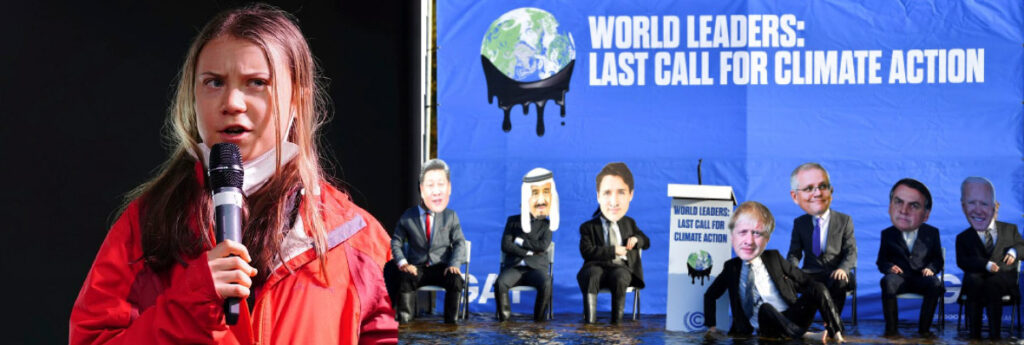Billed as a “make or break” moment for the planet, the COP26 climate change summit in Glasgow, Scotland, saw nations coming together to commit to reducing emissions and ultimately slowing the rate of global warming, hoping to mitigate environmental catastrophe. However, most Canadians say it may already be too late.
A new study from the non-profit Angus Reid Institute finds Canadians voicing overwhelming climate pessimism, both for current COP26 efforts and for the future of the planet.
More than four-in-five (84%) say that they have little confidence that meaningful progress against climate change will emerge from the two-week summit. These levels of pessimism persist regardless of how serious Canadians perceive climate change to be.
Perhaps more disturbing, a majority of Canadians appear resigned to the fate of a warming planet and the ecological crisis unfolding. Half say global efforts will “probably not” help to reverse the effects already being felt – from severe weather events, to floods and forest fires – while one-in-five (19%) say it’s either already too late or that they have no faith at all in mitigation efforts.
Notably, younger generations offer little more hope than their older peers. Only three-in-10 men (31%) and one-in-five women (18%) younger than 35 say that they believe the effects of climate change can be softened or reversed.
Amid these gloomy prognostications, the appetite for more efforts from the federal government on this file is significant. Fully half (52%) say the government is not doing enough to address climate change, while three-in-10 (30%) say it is going too far in its plans.
More key findings include:
• Seven-in-10 (71%) Canadians say that climate change is a fact, caused mostly by human activities, while (19%) support the theory but feel that natural changes are driving warming.
• Half of Canadians now say that climate change is a “very serious” threat, the highest mark since 2014.
• Residents in Alberta and Saskatchewan are most likely to say the federal government is too focused on climate change efforts, while those in Quebec (67%) and British Columbia (59%) are most likely to say it has not done enough.

